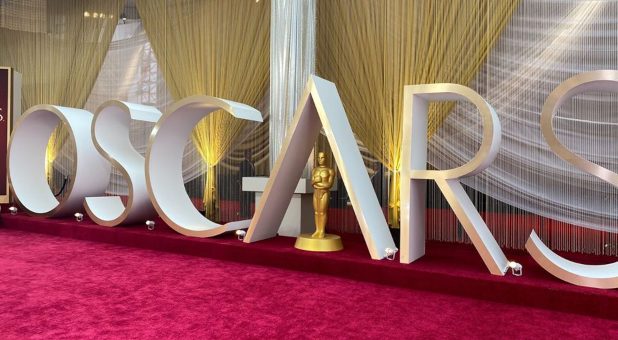This Faith-Based Film Didn’t Win an Oscar Sunday—But It Should Have
Tom Hanks did not take home an Oscar for his role in It’s a Beautiful Day in the Neighborhood, but I am convinced that the movie in which he starred as Fred Rogers is exactly the kind of movie we need right now. It is the extravagant display of kindness embodied in the life of Rogers that captures the viewer. If you have watched it, surely you too were drawn in by its humanity and beauty.
The movie bases itself on a burgeoning friendship between journalist Lloyd Vogel from Esquire magazine and the warm, ministerial and gregarious TV personality Rogers, played by Tom Hanks. The movie portrays Vogel as having a generally cynical disposition about life. The relationships in Vogel’s life appear shaky, he doesn’t appear to have time for anyone and his relationship with his father has a lot of baggage. It is within this context that he is assigned a feature piece around the topic of modern-day heroes by his boss at Esquire. The person he is assigned to interview and write about is none other than Rogers.
To my surprise, as I watched the movie I experienced a gentle rebuke simply in the way Rogers treated Vogel. By his interaction with this cynical journalist, Rogers demonstrated an outward-focus. I was struck by how much he cared about the needs of people around him and for those in society. He prayed for others. He listened. He was patient with people. He lived within the complexity of life. He humanized people, especially the people who we are inclined to see as evil or different from us. He did not have all the answers to the questions being asked, but he tried to understand difficult events and difficult people. In short, he thought of others.
I am not sure if I have ever enjoyed being told off by someone, but this unintended rebuke from Mister Rogers is just what I needed. Lately I have noticed that I find it much easier to tune out a difficult person than try to listen to them. I find it much more efficient to place a person into a category than go to the effort of trying to understand them.
Here is where I felt the nudge from Mister Rogers: His interaction with Vogel called me out on my self-centeredness. Perhaps it’s a message we all need to hear—a simple, but difficult, challenge to love others.
As I reflect on the last year, it is safe to say that we are now living in a protest-everything age. If someone has wronged us, we will make sure that others know. There is always a protest just lurking around the corner for us to take up. And although there are indeed positives to these protests, this should also give us reason for some introspection.
Maybe we should start asking ourselves what our protests are really about. Might some of our protests and activism be more self-centered than we think? When I observe Mister Rogers in It’s A Beautiful Day in the Neighborhood, I see a stark contrast between my self-centeredness and Rogers. He thought of others before he thought about himself. I am not sure I can say the same about myself.
At one point in the film, Lloyd turns to Mister Rogers and says, “You love people like me.” His eyes lighting up, Rogers says, “What are people like you?” Vogel then responds in a shaky and quiet voice, “Broken people.” You could hear a pin drop in the movie theater while Vogel uttered those words. The awareness of deep kindness was breathtaking.
Surely if there is one message that we all need to hear over and over again, it is that we—broken people—are loved. As a person of faith, I know this truth profoundly, but to see it modeled in the life of Rogers was especially compelling.
But perhaps what is telling most of all is that Mister Rogers made an art out of kindness. He made a goal of giving children positive ways to deal with their feelings. He truly broke down barriers with his seemingly otherworldly compassion. This accompanied his honesty with the cost of forgiveness. “Sometimes, it is hardest to forgive the people we love,” he told Vogel. Yet throughout he embodied and instructed a virtue that indeed worked toward forgiveness, understanding and love. He made an art out of this simply because the virtues he instructed others to live by were not merely told; more often than not, he acted out and practiced beauty, truth and goodness before synthesizing those attributes.
Many have noted that our culture is one of contempt, outrage and anger. If that is the case, I believe It’s A Beautiful Day in the Neighborhood provided the antidote we all need. It acknowledged the brokenness we all share alongside Vogel and the medicine we need—not anger, but a community of understanding, listening, forgiveness and even praying.
Here’s to more movies like this and to more living like this. {eoa}
Nathan Betts is an itinerant speaker at Ravi Zacharias International Ministries and speaks frequently across the U.S. and Canada about the interface of faith and culture, and technology.




























































